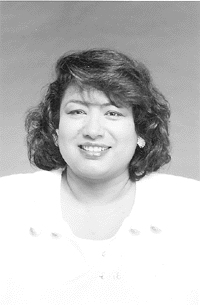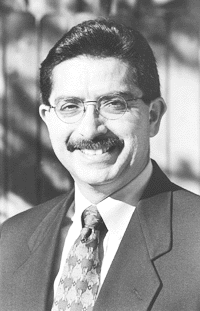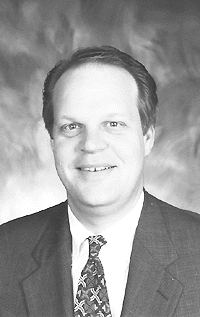Shifting Gears
New Board, Boss, Budget in Store for AISD
By Lisa Tozzi, Fri., April 17, 1998
|
|
There are other weighty issues ahead, too. There's the 1998-99 budget process; the ongoing implementation of a $369 million bond package for new schools and renovations; planning for future growth; meeting the challenge of retaining quality teachers; and determining how best to serve a growing population of low-income students. The redesigned school boundary plan could also come before the new board, as there is some sentiment among the current board and the public to delay approval of the re-drawn boundaries until after the May 2 election.
In contrast to other election years, there are few candidates in each race, whether due to satisfaction with the current representation or a lack of desire to deal with the seemingly thankless volunteer hours required of a trustee. Some AISD observers have expressed disappointment with the limited number of candidates running, particularly for president and vice president, the at-large seats. "It's a really narrow list of folks, which is surprising, considering all that's going on in the district," said one parent after a recent candidates' forum. Even the creation of a wide-open field with the departure of incumbents Jerry Carlson, Tom Agnor, Geoffrey Rips, and Melissa Knippa (each citing work and family obligations), wasn't enough to lure a larger pool of candidates into the fray. Only District 7 has more than two candidates running, while District 1 incumbent Loretta Edelen has the luxury of running unopposed, and the remaining open seats have two candidates in each race. Here's how the landscape appears at this writing:
President
In this at-large race, incumbent President Kathy Rider squares off against a familiar face - former District 2 Trustee Diana Castañeda, who lost a re-election bid in 1996 to Rudy Montoya. Castañeda acknowledges that she faces an uphill battle against the incumbent, particularly since some former supporters, including both major teachers groups - the Austin Association of Teachers and the Austin Federation of Teachers - have thrown their weight behind Rider this time. But Castañeda, 46, says she has decided to attempt a return to the board because she believes the existing board has traded diversity of opinions for the appearance of harmony - to the detriment of poor and minority students. "Only if you are of like mind are you accepted on that board. I don't see anyone speaking up for the real needs of all children," said Castañeda, who gained a reputation for being outspoken and headstrong during her last tenure on the board.
 |  |
| Incumbent AISD President Kathy Rider will square off against former District 2 Trustee Diana Castañeda in the May 2 election. | |
While AISD boasts a decrease in the drop-out rate overall, Castañeda said, the district continues to lose disproportionate numbers of minority students. Two keys to student success, she says, lie in individualized education plans, or IEPs, for every student as early as kindergarten, and the creation of an ombudsman to help guide parents through the system. Castañeda said IEPs, which are now created only for students in special education programs, may be criticized as costly or time consuming, but they are vital in targeting students' learning needs as well as in identifying and developing students' strengths.
While not opposed to IEPs, Rider, 52, says she is cautious about endorsing anything without seeing the price tag and hearing all the facts. "I think teachers would probably scream because it means more paperwork," she noted. Rider, a clinical social worker, says she is proud of the progress the district and the board have made during her tenure, and she points to several significant accomplishments in recent years, including the district's 1.8% dropout rate (down from 7.3% in 1992), increases in TAAS, SAT and ACT scores, and the passage and implementation of the 1996 $369 million bond program as several examples.
"There was a time when we were the laughingstock of the town," she recalls. "But I think the community now knows this is a board that has their best interests at heart. We have seen an amazing turnaround in the district."
Still, Rider acknowledges, much more must be done for poorer and minority students to succeed. She believes that a key to continued progress will be appointing a superintendent with the leadership skills of a CEO, but also "a high-emotional IQ who can fit in with this community and who can share in all its joys and differences."
Vice President
This race has been of particular disappointment to some AISD watchers who had hoped for a more substantial pool of candidates to fill the at-large spot being vacated by the outgoing veep, Jerry Carlson. The field in this case consists of Doyle Valdez and perennial candidate Jennifer Gale. Valdez, a 41-year-old Austin business owner, has served for three years on the Austin City Council of PTAs - an umbrella organization of local parent-teacher groups. He also has held seats on various campus and district-wide committees, including the budget advisory council for two years, a service he says will be particularly valuable in light of the number of newcomers to the board. Like current Vice President Carlson, a former IBM executive, Valdez has rallied the support of the business community, which was no doubt aided by the fact that Valdez runs his own 10-year-old business, Valco Resource Management, Inc., and his brother, Gary Valdez, is a banker and chairman of the Greater Austin Chamber of Commerce. As for priorities, Valdez says the superintendent search is of paramount importance to the next board. While he praised Fox's initiatives, particularly in the areas of student achievement and technology, Valdez said the district is in need of someone "who has good communication skills as well as vision" to keep the district from losing ground. He has also cited improving safety on campus and expanding the scope of the Absent Student Assistance Program, a partnership with Travis County designed to reduce unexcused absences in the schools.
 |  |
| Doyle Valdez and Jennifer Gale vie for the vice presidency. | |
Valdez's only opponent, Gale, who ran unsuccessfully for mayor in 1997 and is also a write-in candidate this year for state attorney general, is not considered by most to be a serious candidate, although she has spruced up her campaign rhetoric since last year's run. At that time, she avoided many candidates' forums and refused to talk to the press, even issuing "death sentences" on certain publications, including this one. This year, Gale, 37, is hitting the forum circuit and vigilantly attending school board meetings. She says of all the positions she's ever campaigned for, she wants this one more than anything. "I'm going to be a leader in this community," she said. "I've got accessibility down to an art."
District 4
Both candidates in District 4, businesswoman Ave Wahrmund and attorney William Newberry, have strong ties to teachers and the issues that concern them: curriculum alignment, TAAS scores, discipline, and salaries. Before starting up a small semiconductor business, Wahrmund in her former life taught at Highland Park and Pleasant Hill elementary schools. She is president of the PTA at Lamar Middle School and served on the district bond committee. Newberry, 38, is a member of the Campus Advisory Council at Davis Elementary School, and both his wife and mother work for AISD.
 |  |
| District 4 candidates Ave Wahrmund and William Newberry | |
Wahrmund, 42, has gained the endorsements of AISD teachers, who see her election as their opportunity to have one of their own on the board, and who have praised her work as PTA president at Lamar. "Ave was really instrumental in turning that school around when it was having some problems," said AFT President Louis Malfaro. Newberry, on the other hand, has the support of this Northwest sector's old guard, which has backed successful candidates in the past, including current Trustee Tom Agnor. Newberry said he was prompted to run because he hears too often about families leaving AISD for Round Rock and Pflugerville schools and says he wants to help improve Austin's image as a viable urban district.
The two candidates tend to agree on many issues, but differ somewhat on the degree to which individual schools' curriculum should be aligned with others. Wahrmund believes there should be a greater expectation that all learners on the same level are studying similar material, no matter what the school. Newberry, on the other hand, says that such expectations have the tendency to "level" instruction to the lowest common denominator at the expense of high-achieving pupils who can quickly move beyond the standard course work.
District 6
In this diverse district of South Central Austin, architect Jeff Jack, president of the Austin Neighborhood Council, and CPA Patricia Whiteside, a longtime member of the Austin City Council of PTAs, are vying for the seat being vacated by Texas Observer publisher Geoffrey Rips. Jack, 50, is known throughout the city for his involvement in numerous school and civic organizations such as the district bond advisory committee, Capital Area Action Network - a homeless advocacy group - the Capital Metro Strategic Advisory Commission, and the Annexation Transition Team, to name a few. Because of his varied experience, he says, he brings a unique perspective to the board and a knowledge of important issues facing District 6 and the overall district. One of his pet ideas is the need for the district to develop a long-term strategic plan that looks at future growth, resources, and financial realities decades down the road to reduce crisis bond initiatives and under-the-gun planning.
 |  |
| District 6 candidates Patricia Whiteside and Jeff Jack | |
But Jack's involvement in an Open Meetings lawsuit against the board, filed last summer by the Save Our Springs Alliance and El Concilio, has created some bad blood between him and existing trustees.
The suit, currently before the Court of Appeals after being rejected by District Court Judge Jeanne Meurer in September, charges that the Board of Trustees broke the law during the site selection process for a Southwest middle school by having those site discussions in executive session. Rips says it was a baseless suit filed as a bullying tactic because Jack and others did not agree with a site the board favored.
"You don't try to hold a school district hostage just because you disagree with the decision and particularly when you know you don't have a legal leg to stand on," said Rips, adding that he himself had problems with the site the board ultimately chose. The district estimates the suit has cost AISD about $32,000 in legal expenses. Rips said he is endorsing Whiteside.
For his part, Jack said he played no role instigating the suit, but was merely called as a witness to express concerns he had about the board's sharing of information with the public. He called Rips' criticism "ironic, considering he has always claimed to be in favor of the kind of full disclosure we were seeking."
Meanwhile, Whiteside's black-and-white lawn signs have been popping up all over Travis Heights in recent days, which could signal a groundswell of support in that progressive neighborhood, and perhaps even a Jack/Whiteside split among environmental-progressive voters.
As a candidate, Whiteside said her perspective is more as an insider looking out. Her involvement in the citywide and campus PTAs gives her a working knowledge of the elementary, middle, and high schools of her district, which is experience she believes would serve her well on the board. Whiteside, who has 15 years in private CPA practice, says her priorities reflect the day-to-day issues of teachers and students - improving teacher salaries, reducing class size, and finding a solution to the district's shortage of substitute teachers.
District 7
This Southwestern area known for its affluence and exploding growth has produced three candidates seeking to fill outgoing trustee Melissa Knippa's spot: Scott Branson, 43; Olga Garza, 41; and Pascual Piedfort, 51. Both Garza and Piedfort boast a good deal of experience within the district and a strong grasp of education issues throughout the state; they seem destined to face each other in a runoff. Branson, a financial consultant who says he became involved with the district after finding the quality and scope of its extracurricular programs lacking, seems somewhat outmatched by his opponents' experience and is not nearly as well-versed on the issues. However, he says his experience in commercial banking and financial consulting would bring "financial responsibility and fiscal management" to the table. Garza, president of the PTA at Kiker Elementary, is director of special projects for the Texas Education Agency's Office of Finance and Accountability; she previously held positions with the Texas Association of School Boards and the Texas Comptroller of Public Accounts, and also was part of the district budget advisory council last year.
 |  |  |
| Scott Branson, Olga Garza, and Pascual Piedfort are on the May 2 ballot for the District 7 seat. | ||
Piedfort, an attorney, recently resigned as president of the Austin City Council of PTAs, a position he held for the past two years. He was Kiker's first PTA president, preceding Garza, and like Garza, has served on numerous school and district-wide committees, including the Citizens Bond Oversight Committee. Given the booming growth in District 7, it's not surprising that developing a long-term building program is a top concern to both. They also each expressed the desire to improve the performance of socio-economically disadvantaged students. Garza said that efforts to prepare students with limited English skills have paid off in improved test scores in recent years, but poor students of every race are still losing ground. Piedfort, like Diana Castañeda, believes that if individualized education plans were developed for every student, the district could better address the needs of the children, and more adequately manage its resources. All in all, Garza's ability to break through the often stilted campaign rhetoric with humor and spontaneity could give her an edge over Piedfort, but considering their similar levels of experience, and their similar perspectives on the issues, this could be a neck-and-neck race headed for a runoff.
Beyond the May 2 election, there is one prediction that can be made with some certainty: The new AISD board will likely have to postpone its honeymoon and immediately forge ahead into the district's thorniest frontiers.
Got something to say on the subject? Send a letter to the editor.







